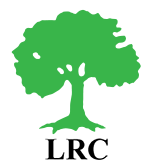Israeli violations against Palestinian Right to Housing in Occupied East Jerusalem During June 2017
Preamble:
Israeli colonists held many festivals and ceremonies to celebrate the fiftieth anniversary of the occupation of Jerusalem. The events came in time with the Muslims fasting month of Ramadan. As a result, Israeli Occupation Forces increased the number of checkpoint and escalated security measures in Jerusalem.
June 2017 witnessed one demolition case of a commercial store at the entrance of Qalandiya refugee camp, north occupied Jerusalem. Also, Israel's occupation municipality notified two residences in Silwan town of administrative demolition orders.
Additionally, a group of fanatic colonists took over a property belonging to Na'aji family in Bab Hutta "Hutta gate" in the Old City of Jerusalem.
Demolition of Palestinian residences:
During June 2017, the Israeli occupation municipality demolished one commercial store at the entrance of Qalandiya camp on the claim of its proximity to the military checkpoint founded in the area.
Location | No. of structures | Benefited family members | Including children |
Qalandiya | 1 | 7 | 2 |
Total | 1 | 7 | 2 |
The following table illustrates the number of demolished structures in Jerusalem during June 2017:
Demolition threats on residences and structures:
The Israeli occupation municipality in Jerusalem notified two residences of demolition in Silwan town in Jerusalem. Noteworthy, the type of served notices were administrative demolition orders.
Colonists attacks and violations:
- A group of colonists were reported to seize the property of Na'aji family, which is a residential room located inside a building inhabited by a Julani family member. The seizure was conducted on the claim that the property is owned by a Turkish Jew .
Land Research Center LRC sees that demolitions contradict with all the International conventions and Humanitarian laws including:
Article 17 of the (1948) Universal Declaration of Human Rights stating: “Everyone has the right to own property alone as well as in association with others. No one shall be arbitrarily deprived of his property.”
Section ‹G› of article 23 of the (1907) The Hague Conventions asserting: “In addition to the prohibitions provided by special Conventions, it is especially forbidden to destroy or seize the enemy's property, unless such destruction or seizure be imperatively demanded by the necessities of war.”
Article 53 of the Geneva Fourth Convention (1948) declaring: “Any destruction by the Occupying Power of real or personal property belonging individually or collectively to private persons, or to the State, or to other public authorities, or to social or cooperative organizations, is prohibited, except where such destruction is rendered absolutely necessary by military operations.”
Section 1, Article 11 of the International Covenant on Economic, Social and Cultural Rights (1966): “The States Parties to the present Covenant recognize the right of everyone to an adequate standard of living for himself and his family, including adequate food, clothing and housing, and to the continuous improvement of living conditions. The States Parties will take appropriate steps to ensure the realization of this right, recognizing to this effect the essential importance of international co-operation based on free consent."
This case study is part of Kan'aan Project


